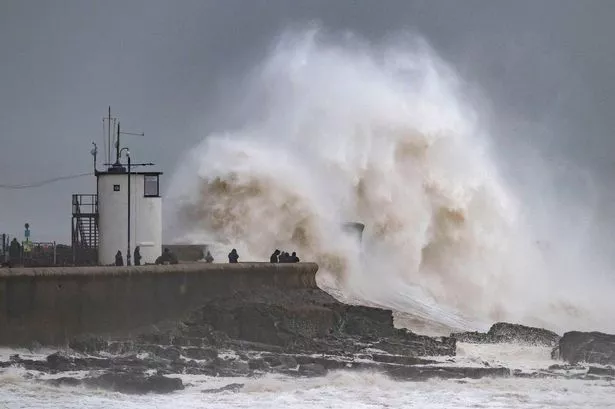The festive anticipation hanging in the crisp winter air is tinged with anxiety for many Britons this Christmas, as the Met Office forecasts a potent storm system poised to unleash its fury across the UK. Strong winds, potentially reaching speeds of up to 75mph, are predicted to batter the country, threatening to throw meticulously planned holiday travel into disarray. Millions are expected to brave journeys by road, rail, air, and sea to reunite with loved ones, but the impending tempest casts a long shadow over the festive homecoming, prompting a frantic rush to complete journeys ahead of the storm’s arrival. Concerns are mounting over the potential for widespread disruption, delays, and even cancellations across all transport networks, leaving travellers stranded and separated from their families during the cherished holiday period. This meteorological Grinch threatens to steal the smooth transit many envision, replacing it with a stressful scramble against time and the elements.
The storm system, fueled by a powerful jet stream roaring across the Atlantic, is expected to develop rapidly and intensify as it approaches the UK. Coastal regions, particularly those exposed to the west and south-west, are braced for the brunt of the gales, with the Met Office issuing warnings for severe weather conditions. The high winds are anticipated to create hazardous driving conditions, particularly for high-sided vehicles and caravans, raising the risk of accidents on already congested roads. Ferry services are also highly susceptible to disruption, with crossings likely to be delayed or cancelled altogether due to rough seas and strong winds. Air travel is similarly vulnerable, with the potential for flight delays and cancellations as strong gusts buffet aircraft and create challenging landing conditions. The combined impact on multiple transport networks creates a complex logistical challenge, potentially leaving travellers stranded and facing significant delays.
The predicted travel chaos comes at a particularly sensitive time, as millions of people embark on journeys to reunite with family and friends for Christmas. The festive period is traditionally a time of increased travel demand, with roads, railways, and airports operating at near capacity. The addition of severe weather conditions significantly exacerbates the strain on the transport network, creating a perfect storm for widespread disruption. Families planning long-awaited reunions face the agonizing prospect of their Christmas plans being derailed, with journeys delayed or cancelled altogether. The emotional impact of such disruptions is substantial, adding stress and disappointment to what should be a joyful occasion.
The Met Office is urging travellers to closely monitor weather forecasts and travel updates before embarking on their journeys. Checking with transport operators for the latest information on delays and cancellations is crucial. Those travelling by road are advised to allow extra time for their journeys, drive with caution, and be prepared for unexpected delays. High-sided vehicles are particularly vulnerable to strong winds, and drivers should consider postponing non-essential journeys in exposed areas. For those travelling by air or sea, staying informed about potential disruptions is paramount, and contacting airlines or ferry operators directly for updates is recommended.
Beyond the immediate impact on travel, the strong winds also pose a risk of wider disruption and damage. Power outages are a possibility, as strong gusts bring down power lines, potentially leaving homes and businesses without electricity during the festive period. Coastal communities face the threat of flooding from high tides and storm surges, adding to the challenges posed by the severe weather. Fallen trees also present a hazard, potentially blocking roads and causing damage to property. Emergency services are on standby to respond to any incidents arising from the storm, but the widespread nature of the predicted severe weather could stretch resources.
In the face of this looming meteorological challenge, the spirit of Christmas resilience is being called upon. Individuals are adapting their travel plans, seeking alternative routes or modes of transport, and bracing themselves for potential delays. Communities are coming together to support those who may be affected by the storm, offering assistance and shelter where needed. While the impending storm adds an unwelcome layer of complexity to the festive season, it also serves as a reminder of the importance of preparedness, adaptability, and community spirit in the face of adversity. As the winds howl and the rain lashes down, the true meaning of Christmas – togetherness, resilience, and the strength of human connection – may shine through even brighter.














